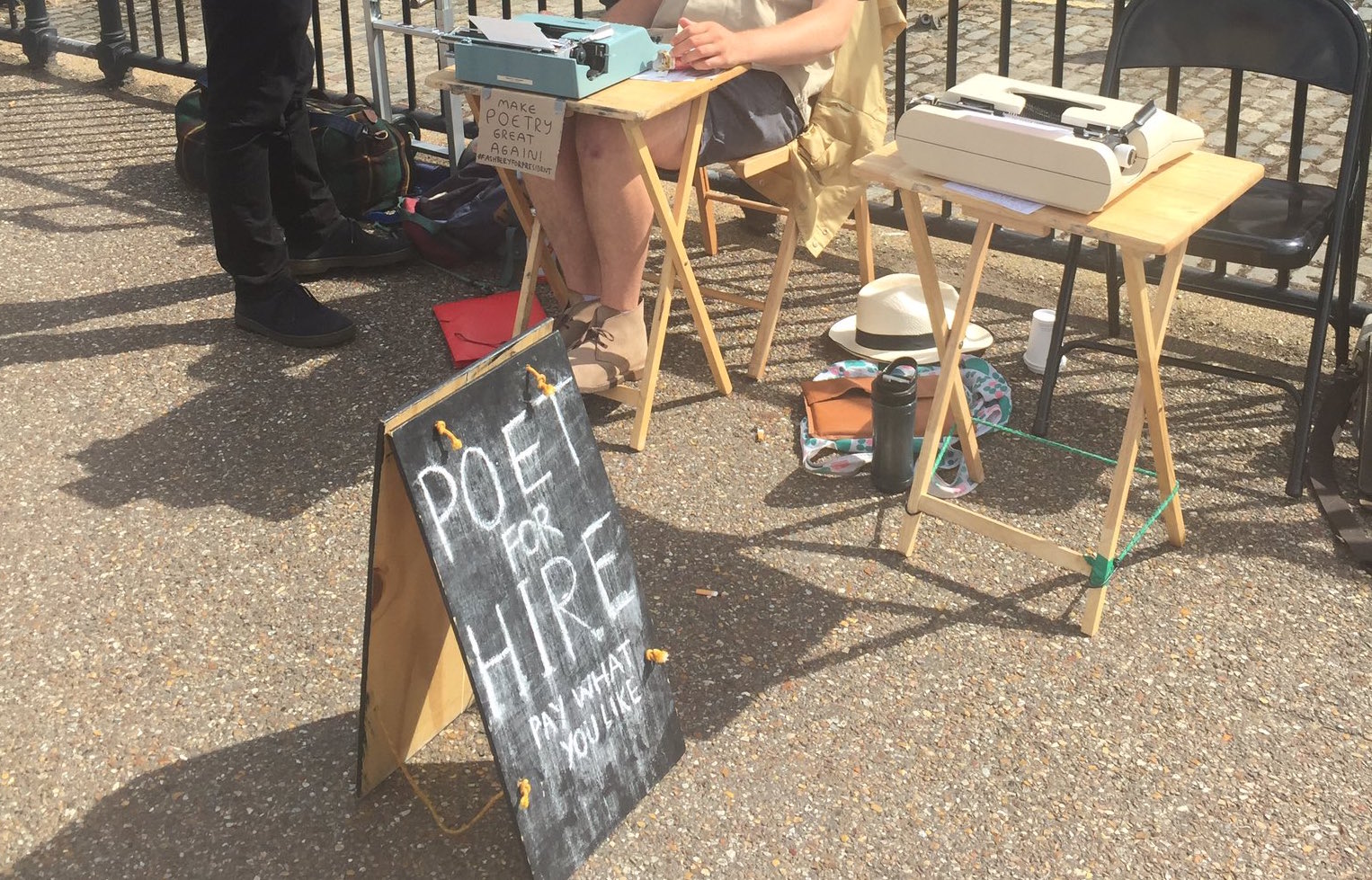Post
Poems of London
21 Apr 2020
The capital has been the source and the inspiration for countless generations of poets, so we thought we'd take a look at some of the words that have moved you. Here Barry Coidan presents his first selection. Let us know which are your favourite London poems in the comments below or be emailing blog@londonsociety.org.uk
Strictly speaking my first choice isn’t a poem. It a popular song written in 1967 by the “Bard of Muswell Hill” the Kink’s Ray Davies. Weirdly “Waterloo Sunset”, the song that closed the 2012 London Olympics, was originally called “Liverpool Sunset” but we’ll let that pass.
Waterloo Sunset
"Dirty old river, must you keep rolling, flowing into the night?
People so busy, make me feel dizzy, taxi light shines so bright
But I don't need no friends
As long as I gaze on Waterloo sunset, I am in paradise
Every day I look at the world from my window
(Sha-la-la) But chilly, chilly is the evening time
Waterloo sunset's fine (Waterloo sunset's fine)
Terry meets Julie, Waterloo Station, every Friday night
But I am so lazy, don't want to wander, I stay at home at night
But I don't feel afraid
As long as I gaze on Waterloo sunset, I am in paradise
Every day I look at the world from my window
(Sha-la-la) But chilly, chilly is the evening time
Waterloo sunset's fine (Waterloo sunset's fine)
Millions of people swarming like flies 'round Waterloo underground
But Terry and Julie cross over the
River where they feel safe and sound
And they don't need no friends
As long as they gaze on Waterloo sunset they are in paradise
Waterloo sunset's fine
Waterloo sunset's fine
Waterloo sunset's fine”
I don’t know about you, but I get shivers up my spine reading those lyrics. That is due, in part, to my age. 1967 was my first year at University and we were in the middle of Flower Power, the Anti-Vietnam War Marches and student sit ins at the London School of Economics. It is, however, an extremely effective, simple song.
Another fine poem featuring, this time, Waterloo Bridge is “After the Lunch” by Wendy Cope, where, I think, she references the Kink’s song.
“On Waterloo Bridge, where we said our goodbyes,
The weather conditions bring tears to my eyes.
I wipe them away with a black woolly glove
And try not to notice I've fallen in love.
On Waterloo Bridge I am trying to think:
This is nothing. You're high on the charm and the drink.
But the juke-box inside me is playing a song
That says something different. And when was it wrong?
On Waterloo Bridge with the wind in my hair
I am tempted to skip. You're a fool. I don't care.
The head does its best but the heart is the boss.
I admit it before I am halfway across.”
It’s possible not to have noticed the celebration in early April of the birth of William Wordsworth two hundred and fifty years ago. He was moved/inspired by the sight of the City in the early morning from Westminster Bridge “Composed upon Westminster Bridge, 3 September, 1802”. Its opening lines were/are learnt by rote in classes up and down the country.
“Earth has not any thing to show more fair:
Dull would he be of soul who could pass by
A sight so touching in its majesty:
This City now doth, like a garment, wear…”
Personally, I prefer Cope’s rhymes, but Wordsworth has staying power on his side.
There’s James Thomas, a Scottish poet of the early 18th Century who famously wrote the lyrics to “Rule Britannia”. The poem “Polycrates on Waterloo Bridge” seems to be in praise of the poet’s Meerschaum Pipe. Irritatingly there’s another James Thomas (1834 -82) who is credited with this poem, but this James was a depressive, an alcoholic and insomniac who’s works were full of despair and gloom. His life mirrored that of Edgar Allan Poe. He surely couldn’t have written:
“Let no mortals dare to be
Happier in their lives than we:
Thus the jealous gods decree.
This decree was never heard,
Never by their lips averred,
Yet on high stands registered.
I have read it, and I fear
All the gods above, my Dear,
All must envy us two here…
Let us, then, propitiate
These proud satraps of sole Fate;
Our hearts' wealth is all too great.”
It’s no surprise London has inspired poets. After all who wouldn’t be moved by …
Descriptive Jottings of London: William McGonagall
“St. Paul’s Cathedral is the finest building that ever I did see;
There’s nothing can surpass it in the city of Dundee,
Because it’s most magnificent to behold
With its beautiful dome and spire glittering like gold.
And as for Nelson’s Monument that stands in Trafalgar Square,
It is a most stately monument I most solemnly declare,
And towering defiantly very high,
Which arrests strangers’ attention while passing by...”
London has a lot to answer for!!
